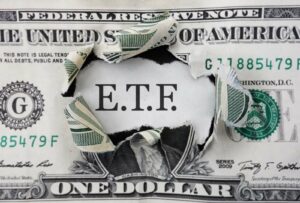article by Jack Hemphill and Jake Jacobs

FinePrint’s breakdown of Sen. Loeffler’s holdings in Intercontinental Exchange, Inc.
Senator Kelly Loeffler’s (GA-R) stock holdings in Intercontinental Exchange (NYSE: ICE) are significantly larger than made apparent by reading her Congressional financial disclosures. Those filings only disclose that her holdings are “greater than” $25 million, but give no indication as to the degree. By cross referencing her Congressional disclosures against Securities and Exchange Commission filings, we have determined that she and her husband actually own 4.7 million shares in Intercontinental with a current value of approximately $480 million. This represents 71% of her estimated net worth.
While her Congressional disclosures do seem to meet the minimum requirements set out by the STOCK Act, an acronym for Stop Trading in Congressional Knowledge, Loeffler’s level of disclosure regarding Intercontinental is inconsistent between her Annual Financial Disclosure and several Periodic Transaction Reports released over the summer, which show holdings of at least $172 million. Her Annual Financial Disclosure limits the information revealed about her holdings by making liberal use of a reporting exception that allows her to disclose her husband’s holdings of Intercontinental as simply “greater than $1 million” rather than the more informative “greater than $50 million” disclosure that is normally required.

Loeffler’s Annual Financial Disclosure using the “Over $1,000,000” declaration reporting exception

Loeffler’s Personal Transaction Report using regular, un-excepted reporting categories.
Loeffler’s vast holdings in Intercontinental introduce a clear and present conflict of interest because she holds a seat on the Senate Agriculture Committee (formally, since 1977, the Senate Committee on Agriculture, Nutrition, and Forestry). This conflict stems from the little-known fact that the Agriculture Committee oversees the Commodities Futures and Trading Commission (CFTC). In a recent shareholder report, Intercontinental acknowledges that the company is “subject to extensive regulation by the [CFTC].”
Today, the CFTC’s mandate has expanded such that it now functions as the primary regulator of a US derivatives market that totals $600 trillion in nominal value and includes agricultural and mineral futures, energy contracts, interest rate swaps, crypto-currency transactions, and foreign exchange derivatives. By comparison, the US stock market has only a $30 trillion nominal value and the US bond market has a $40 trillion nominal value.
This means that the CFTC (an agency that Loeffler oversees) directly regulates Intercontinental Exchange (a company that accounts for 71% of Loeffler’s net worth).
Trading in derivatives regulated by the CFTC accounts for approximately half of Intercontinental’s $6 billion in revenue. With the company paying $1.20/share in dividends this year and attributing half of that dividend to derivatives trading, Loeffler and her husband will be paid $2.8 million for trading activity that she specifically oversees.
Surely, one would hate to be Intercontinental’s competition; it almost seems unfair.
Although Intercontinental does own the New York Stock Exchange, the world’s largest stock market, it is only the third largest exchange group in the world, behind Hong Kong Exchanges and Clearing Limited and the CME Group Inc. In response, Intercontinental has aggressively pursued new financial exchange products – such as creating a cryptocurrency contracts and futures exchange.
In this domain, Loeffler is particularly well-positioned. She served as the first CEO of Bakkt, an Intercontinental subsidiary created with the goal of launching a physically-backed Bitcoin futures contract. Although Bakkt received CFTC approval and launched in 2019, before Loeffler was appointed to the Senate, it found success in the crypto marketplace. Although it is unclear what Intercontinental plans for the future with crypto, any movement in that space will require CFTC approval.
If Loeffler wins her election, she will be able to influence these debates through both the Committee on Agriculture’s ongoing oversight and its need to craft a bill reauthorizing the CFTC in 2025.
Despite being called a “walking conflict of interest” for her Intercontinental holdings, Loeffler has actually increased her ownership of Intercontinental stock she owns since becoming a Senator. Periodic transaction reports released since her full financial disclosure in May reveal that Loeffler and her husband have received an additional $3.8 million in Intercontinental shares as compensation for their roles in the company.
That she maintained and even expanded her holdings in Intercontinental is somewhat surprising. On April 8th, Loeffler committed to selling all of her individual stock holdings. This announcement came after she was criticized for allegedly using insider information received during a COVID-19 briefing in the Senate to sell stocks in a number of retailers and purchase stocks in Dupont, a key supplier of PPE and Citrix, a major teleconferencing company, a week before information about the pandemic was made public.
Georgia Democrats and even a few Republicans accused Loeffler of profiteering and called for her to resign. In response, Loeffler liquidated approximately $65 million in individual stock holdings, presumably re-investing in ETFs and mutual funds. However, she has maintained her holdings of Intercontinental, and her husband has continued to receive compensation in the form of Intercontinental options and shares.

Per SEC filings, on 5/20/20, Intercontinental shares were acquired and disposed of for cash as part of an executive compensation plan.
As a result, 71% of Loeffler’s net worth is invested in a company that she regulates: Intercontinental Exchange. Intercontinental stock remains such a massive portion of Loeffler’s assets that promoting that company’s financial performance is the single most-dominant interest of her family’s investment portfolio.





